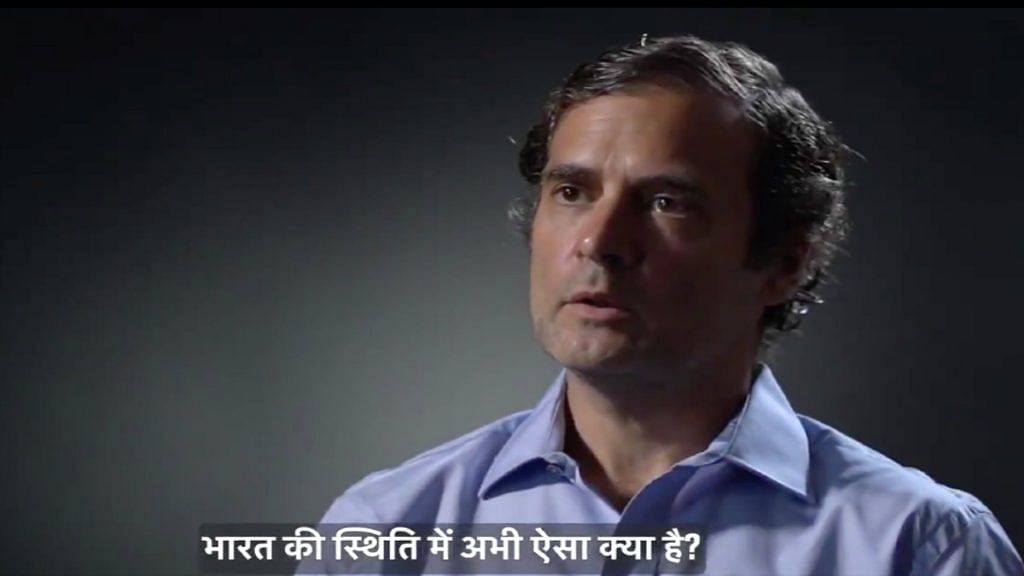New Delhi: Even as some of the opposition parties, including the Congress, continue with their political strategy to discredit the Narendra Modi government over the ongoing India-China face-off at the Line of Actual Control (LAC), they can learn a thing or two from the Bharatiya Jana Sangh (BJS), which became the Bharatiya Janata Party (BJP) later.
The BJS was one of the most vocal critics of the Congress government at the Centre, but it didn’t mince words in supporting the then Prime Minister Jawahar Lal Nehru when he dealt with China in the early 1960s.
The BJS passed dozens of resolutions on India-China affairs. In all these resolutions, wherever Nehru or the Congress government were criticised, the criticism was always accompanied by a set of constructive suggestions rather than potshots at the PM.
On 20 March 1960, around a month ahead of a crucial meeting between Nehru and Chinese Premier Chou En-lai, which was scheduled to take place in New Delhi, the BJS passed a resolution.
The resolution said, “Jana Sangh assures the Prime Minister that the entire country will be with him in the most difficult steps that would be required for talking to China from a position of strength and for ending her aggression.”
This, despite the fact that the BJS principally didn’t agree with Nehru’s move to invite the Chinese Premier for talks.
Another resolution passed on 24 May 1962 at the All India General Council (AIGC) of the Bharatiya Jana Sangh said, “The Prime Minister’s categorical retort to China’s threat asking us to vacate two of our check posts is welcome.”
It added, “The All India General Council thinks it is imperative that our border defences must be expeditiously built up and vigorous China policy aimed at securing early liberation of areas under Chinese occupation must be pursued.”
Also Read: Learn from Nehru’s mistakes, beware of Chinese expansionism: What RSS’ China policy says
Measured criticism
Meanwhile, in the earlier part of the BJS’ 20 March 1960 resolution, it said, “Jana Sangh considers that the Prime Minister’s invitation to Shri Chou En-lai to visit Delhi is against the honour and sovereignty of the nation as it has been given while Chinese aggression on Indian territory still continues and while there are no signs of any change in the Chinese attitude in this connection.”
It added, “It is a matter of regret that the Prime Minister has not been able to understand and represent the people’s feelings on such an important matter as foreign aggression. Now that the Chinese Prime Minister has accepted the invitation to visit Delhi, a meeting of the two Prime Ministers is definite.
“In the opinion of Jana Sangh, the only topic of discussion in such a meeting could be ‘When will the Chinese forces vacate Indian territory?’ To talk about anything else would be to accept the aggression by bringing the aggressor and the aggressed on the same level.”
The resolution cautioned, “Accepting Chinese sovereignty on Tibet, the surrender of all our rights in this case to China, long-term connivance about the Chinese aggression, hiding this fact from the people and Parliament and an invitation to the Chinese Prime Minister for talks without any pre-conditions, all these facts create apprehension that in his eager bid for peace and friendship with China, the Prime Minister may enter into a compromise which would require a change in the traditional borders of India and the surrender of some Indian territories to China.”
It added, “Jana Sangh is firmly of the opinion that any such compromise would not only fail to safeguard our frontiers but prove more dangerous as it would become a lever in the hands of the aggressor. India’s inability to protect its frontiers with honour would not only prove disgraceful in the eyes of the whole world but would have a particularly bad effect on those small countries of South and South-East Asia which are trying to achieve economic independence through democratic means and which want to remain away from international power-blocs in spite of all difficulties.”
After the Nehru-Chou talks failed, the Central Working Committee (CWC) of the BJS passed another resolution on 1 June 1960, where it slammed China and called for stepping up of preparations to fight it.
It said, “The working committee reiterates its demand that effective steps should be taken to get the Chinese aggression vacated at an early date. At the same time, preparations for militarising the nation and improving the defence potential of the country be stepped up to establish balance of power with China, which is the only guarantee against her further aggression.”
The above-mentioned resolutions have been sourced from Bharatiya Jana Sangh 1952-80, Party Document, Volume 3.
The writer is associated with the RSS. He is research director at a Delhi-based think tank, Vichar Vinimay Kendra, and has authored two books on the RSS.
Also Read: How Syama Prasad Mookerjee launched first nationwide campaign on J&K and paid with his life
